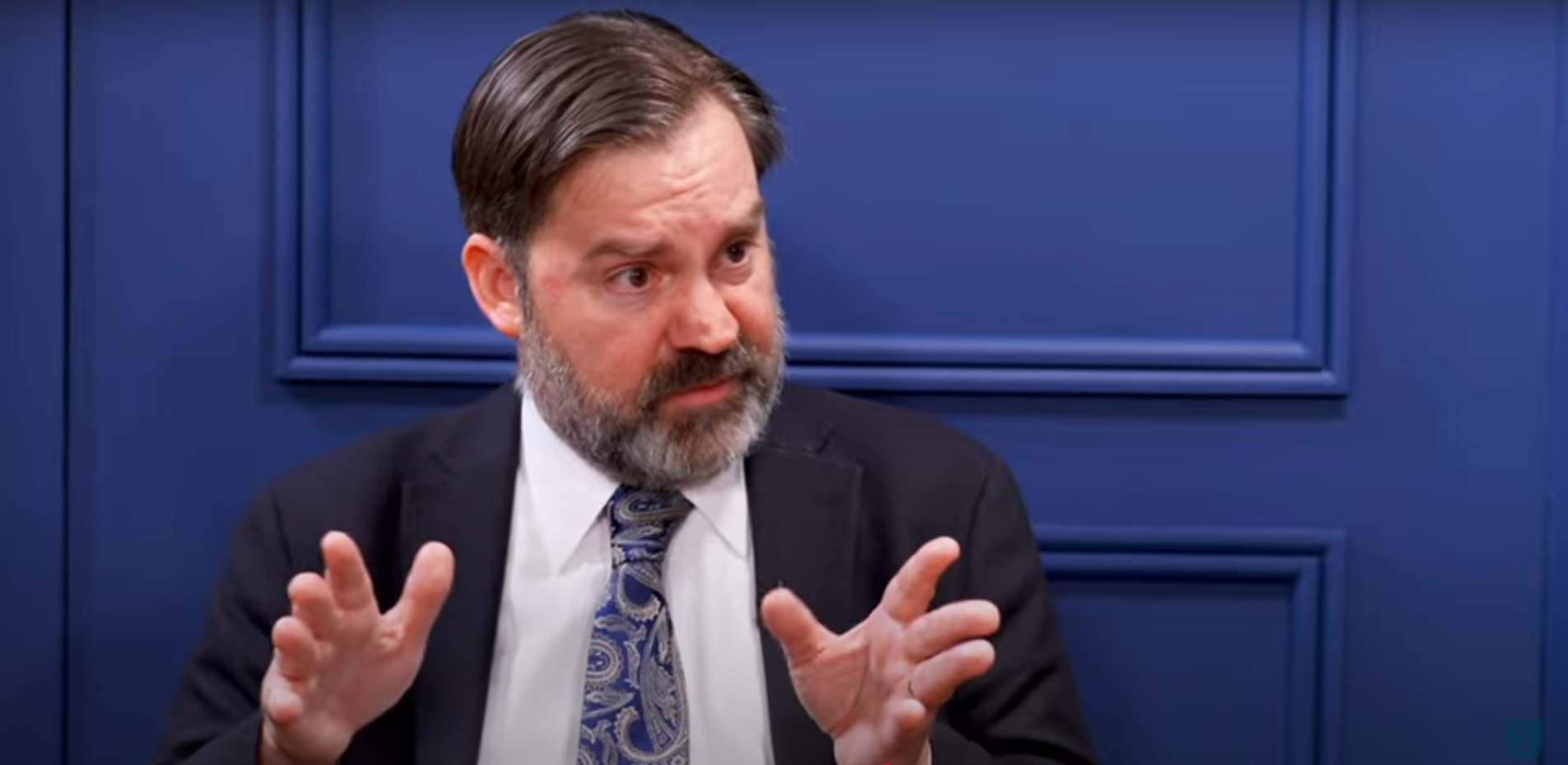Old Whigs: Burke, Lincoln, and the Politics of Prudence
By Greg Weiner
(Encounter Books, 2019)
Greg Weiner’s latest work addresses a theme—prudence—that has guided his scholarship ever since his first book, on James Madison, was published in 2012. In Old Whigs, Weiner discusses how Edmund Burke’s and Abraham Lincoln’s conceptions of prudence shaped their political thought and approach to statecraft. Weiner’s concise book is accessible to the lay reader yet informative for Burke and Lincoln scholars seeking to move beyond stale interpretations that pit Burke’s “historicism,” with its attention to circumstance, against Lincoln’s “natural rights” theory, with its emphasis on the universal equality of mankind.
Weiner instead invokes a notion of prudence endorsed by both statesmen, each of whom described himself as an “old Whig.” This form of prudence was a calibrated attempt to fulfill a moral aim with steadiness of purpose and action, acknowledging the friction of circumstance but not surrendering to its demands. Such prudential behavior, according to Weiner, “involves a carefully choreographed dance between principle and circumstance.” Principle, he continues, “is the end according to which prudence decides on its courses.” Rather than reflexively obeying the authority of contemporary practices and prejudices, some of which may offend human sensibilities, prudence seeks to steer them in a manner that places society in the best position to realize ethical commitments, without succumbing to extremism that might sow greater social discord.
Prudence is characterized in Old Whigs by a variety of features: it brings out the universal through the particular; it includes reason but is aware of its limits; it recognizes that men are often compelled to make imperfect choices; it prompts men to satisfy moral ends in concrete reality; it forces men to consider the consequences of rash or timid action; it broadens the mind to consider and harmonize the many complexities of civil society; it cools and redirects individual ambition toward honorable ends; it teaches that change can occur through generations as well as within them; it orients men away from utopian visions; it combines reason with sentiment; it seeks wisdom in custom; and it demands the willingness to make distinctions and judgments.
Prudence is not synonymous with incrementalism, although prudent action may at times call for incremental behavior. As Weiner explains, prudence entails a careful weighing of the exigencies of the moment, assessing which particular circumstances require immediate and bold action and which require patience. “Not every moment is Munich, but Munich was,” he writes. Prudence reflects a faculty of judgment keen on discretion, alert to the possibility that both action and inaction can embody courage, depending on the public mood and demands of the times.
In presenting this picture of prudence, Weiner performs an important service by breaking Burke free from a dogma—still lingering in some scholarly circles—that depicts him as a statesman of expediency detached from a sturdy moral code. Such charges demonstrate an ignorance of Burke’s attempts throughout his political life to pursue moral aims in the teeth of harsh resistance and at great risk. Although this negative perception of Burke, which is rooted in late nineteenth-century interpretations, was discredited by twentieth-century scholars, it tends to resurface, and Weiner does a commendable job exposing its limitations not simply by highlighting Burke’s embrace of the moral law but also by connecting his understanding of the moral law to a kind of noble prudence that escapes the limits of utilitarian thought.
Whether intentionally or not, Weiner also challenges readings of Lincoln that portray his thought and statesmanship as a struggle to recover conceptions of natural rights and natural law stripped of historical circumstance. Because prudence required awareness of prevailing public attitudes, Lincoln merged poetry with prose, cherishing ideals of natural rights for slaves but also heeding the imperatives of caution necessary to realize those rights in actual political situations. Comprehension of Lincoln’s political life requires acknowledgment of this form of prudence—which is not to be confused with mere “pragmatism”—as much as his appeals to transcendent right.
Even when recognizing their shared understandings of prudence, Weiner is careful not to collapse all distinctions between Burke and Lincoln. Lincoln’s penchant for applying the logical undertones of Euclidean geometry to human affairs presses against Burke’s belief that mathematical proofs failed to capture the complexities of society. As Weiner notes, Lincoln’s fondness for Jefferson—he of French revolutionary persuasions who was consulted by the Marquis de Lafayette in the drafting of the Declaration of the Rights of Man and of the Citizen—is an even grosser affront to Burke’s antirevolutionary sentiments. In addition, Lincoln’s famous statement in his Lyceum Address that “reason, cold, calculating, unimpassioned reason, must furnish all the materials for our future support and defence” revolts against Burke’s attack on cold logic in the Reflections and elsewhere. Lincoln was also attracted to the writings of Thomas Paine, whose deism and “rights of man” philosophy encroached on the most sacred principles in Burke’s thought. (Weiner does observe that Lincoln’s hardened concept of reason had been softened by his notions of grace and humility by the time of his second inaugural.)
Even when Lincoln summoned the authority of ideals to inveigh against slavery, he emphasized that he was seeking not to discover new rights but rather to restore America’s conception of natural rights as captured in the Declaration of Independence. These rights were not speculative innovations, such as those found in the French Revolution’s Declaration of the Rights of Man, but ancestral principles expressed in a concrete document of the American Founding. As Weiner notes, this mode of reasoning is noticeably similar to Burke’s attempts to reaffirm the ancient principles of the British Constitution—which, admittedly, were distilled throughout the ages rather than articulated in a single document like the Declaration—during times of political crises. Lincoln’s and Burke’s attempts to revive a prior, and proper, understanding of rights woven into American and English traditions exemplified this element of prudence in their thought and statesmanship.
Early Abolitionist
Surprisingly, Weiner offers little discussion of Burke’s views on slavery. Such was the classic case in which Burke exercised prudence in pursuit of a moral principle: his Sketch of a Negro Code—one of the first plans for the abolition of the slave trade in English history—envisioned the gradual enhancement of restrictions on the trade, guided by the ultimate aim of regulating slavery out of existence. Burke did not immediately release the Sketch to the broader public after drafting it in 1780, quite aware that the plan would be met with instant political opposition and further entrench pro-slavery opinion against abolition. Yet once the tides of public opinion turned against slavery in the 1780s, Burke issued passionate attacks on the institution in Parliament, denouncing it as an offense to the law of nature.
By the early 1790s, nevertheless, Burke observed that plans for abolition were adopting a democratic nature too radical for his liking. He believed popular sentiment lacked sufficient awareness of the difficulties of eradicating the institution without creating disorder in the British West Indies. (The prospect of slave revolts in the French West Indies sent a shiver through Burke’s spine as well.) Burke thus sought to reinforce his commitment to gradual abolition, believing that phased regulation of the slave trade, combined with the steady enlargement of slaves’ liberties, would establish a path for the institution’s eventual abolition while preserving social stability.
Burke’s plan is open to criticism from a modern perspective, but at the time he conceived it, it demonstrated the noble kind of prudence that Weiner describes in Old Whigs: establish a practical aim grounded in moral principle, and employ sound means to achieve it without either sacrificing the principle or provoking social upheaval.
There is a graceful convergence between Burke’s approach to gradual abolition and Lincoln’s initial preference for gradual emancipation. “Because of the unavoidable circumstance that slavery existed in the South,” Weiner writes, “Lincoln preferred gradual emancipation as a means of slowly habituating slaveholders to the institution’s end.” Weiner outlines examples of Lincoln’s prudential statesmanship—such as the sixth Lincoln-Douglas debate; his 1859 Chicago speech; his first inaugural; and his 1862 response to Chicago ministers pleading for emancipation—to underscore his careful attempt to move toward a goal through constitutional and peaceful means, bearing in mind the circumstances that posed many difficulties in halting the expansion of slavery, not to mention in granting freedom to slaves. Lincoln, Weiner also notes, supported the idea of granting compensation to slave owners, further displaying his statesmanship of prudence.
Weiner even attempts to draw out the prudential elements of the Emancipation Proclamation to accent the principle of caution in Lincoln’s statesmanship. While the Proclamation continues to be a source of contention, including from those who believe it to be a reckless act of unilateral executive power, Weiner suggests it was consistent with a lofty notion of prudence: a bold action, struck at the appropriate moment (in Lincoln’s judgment), proportional to the danger posed by circumstances that cried out for decisive leadership.
Accordingly, Weiner’s nuanced treatment of Lincoln’s prudence dissents from hot-blooded views of the president as a dictator and proto-fascist scheming to smother the liberties of Americans. We must remind ourselves that Lincoln’s initial aim following the Kansas-Nebraska Act and the repeal of the Missouri Compromise was not to impose abstract natural rights on the Southern populace but to restrain the growth of slavery beyond existing slaveholding states. Weiner’s lesson is particularly pertinent for the modern tendency to conflate different strands of antislavery thought as “abolitionism.” Lincoln believed slavery was a dark trespass against the natural law, but he was no John Brown.
States of Mind
In a study of comparative political theory and statesmanship, one has to orchestrate efficient transitions from quotation to quotation taken from the broad corpus of each thinker’s writings and speeches, which leaves less room for historical and intellectual context. At times, Old Whigs passes through quotations with a quickness that leaves the reader wanting to learn more about their contexts. In addition, there are moments that perhaps call for greater elaboration on Burke’s and Lincoln’s shifting applications of prudence, such as Lincoln’s movement away from compromise and concession by the late 1850s.
In the end, however, Old Whigs provides an important contribution to the study of Burke and Lincoln—and of prudence—that carries at least two crucial implications for today’s debates. First, Weiner’s book suggests that the temptation to impose a looming distinction between “historicism” on the one hand and “universal rights” on the other vastly simplifies the state of mind of statesmen such as Burke and Lincoln, both of whom did not apprehend such a stark division between principle and politics. In other words, an awareness of circumstance need not mandate blind submission to History, moral relativism, or nihilism; nor does an awareness of a conception of morality and rights that transcends a particular community sanction global dominion based on notions of abstract universality.
The additional implication is that Weiner’s most significant argument—prudence affirms principle rather than refutes it—arrives at a tense juncture in American politics during which both conservatives and liberals are fond of employing the strident language of war in the service of their all-or-nothing political objectives. “All conflicts seem ultimate, every election a choice between redemption and doom,” Weiner writes. He suggests that Americans should resist this dangerous and desperate mindset, for men and women of all political persuasions could learn something from the way in which Burke and Lincoln carefully navigated the tension between principle and circumstance with steady resolve in highly charged political environments. In this sense, Weiner’s book is a timely and necessary guide for our political moment. It is, in other words, prudent.
Gregory M. Collins is a postdoctoral associate and lecturer in the Department of Political Science and Program on Ethics, Politics, and Economics at Yale University, and the author of Commerce and Manners in Edmund Burke’s Political Economy.
Founded in 1957 by the great Russell Kirk, Modern Age is the forum for stimulating debate and discussion of the most important ideas of concern to conservatives of all stripes. It plays a vital role in these contentious, confusing times by applying timeless principles to the specific conditions and crises of our age—to what Kirk, in the inaugural issue, called “the great moral and social and political and economic and literary questions of the hour.” Subscribe to Modern Age »














